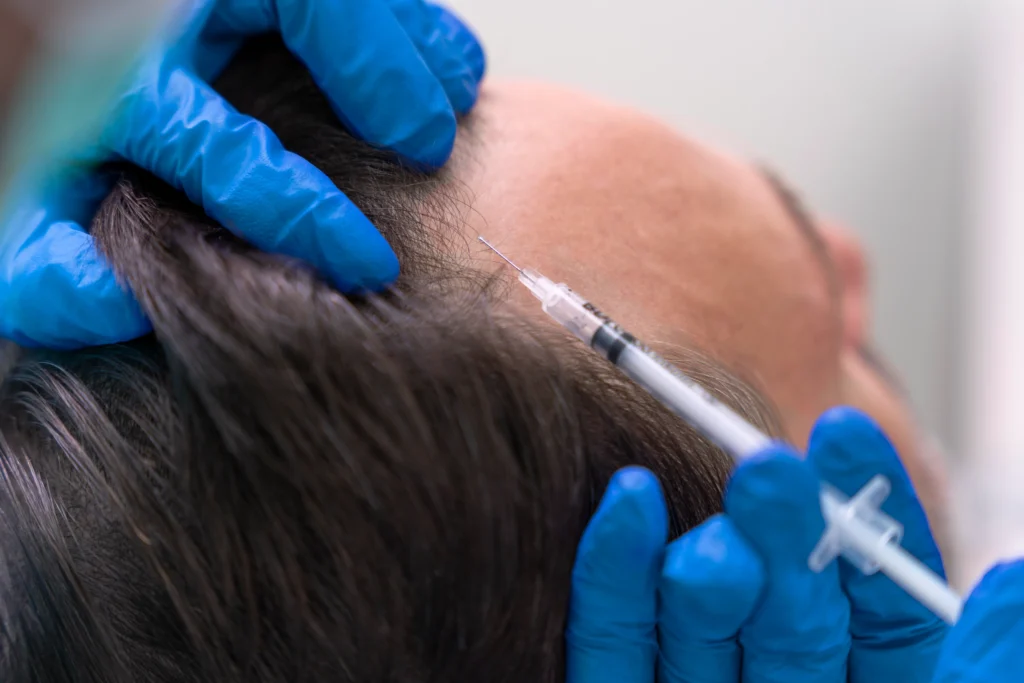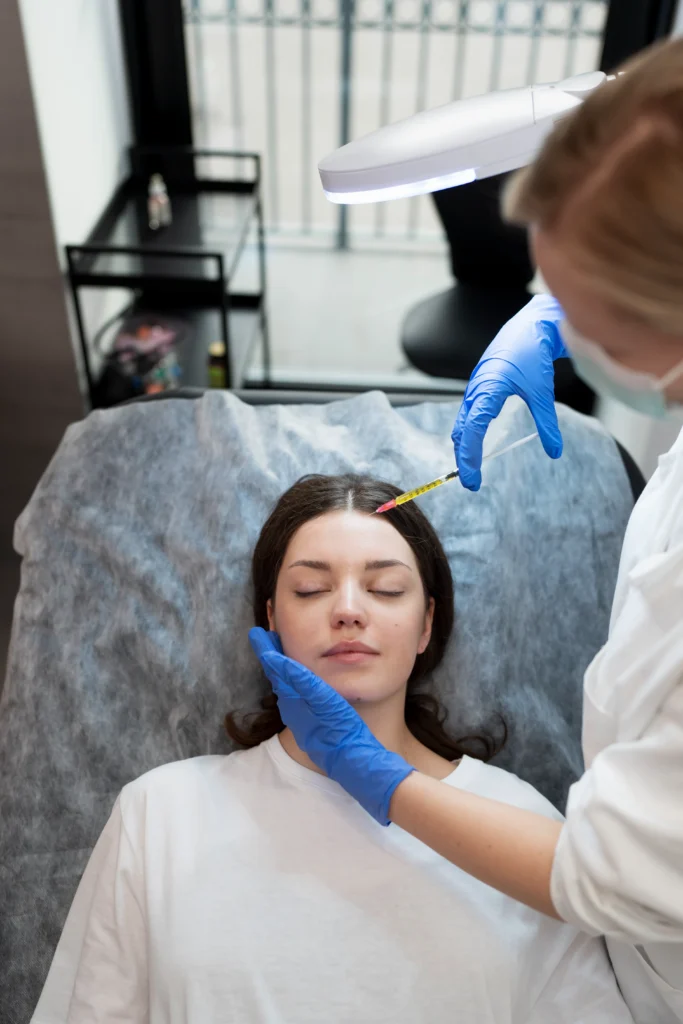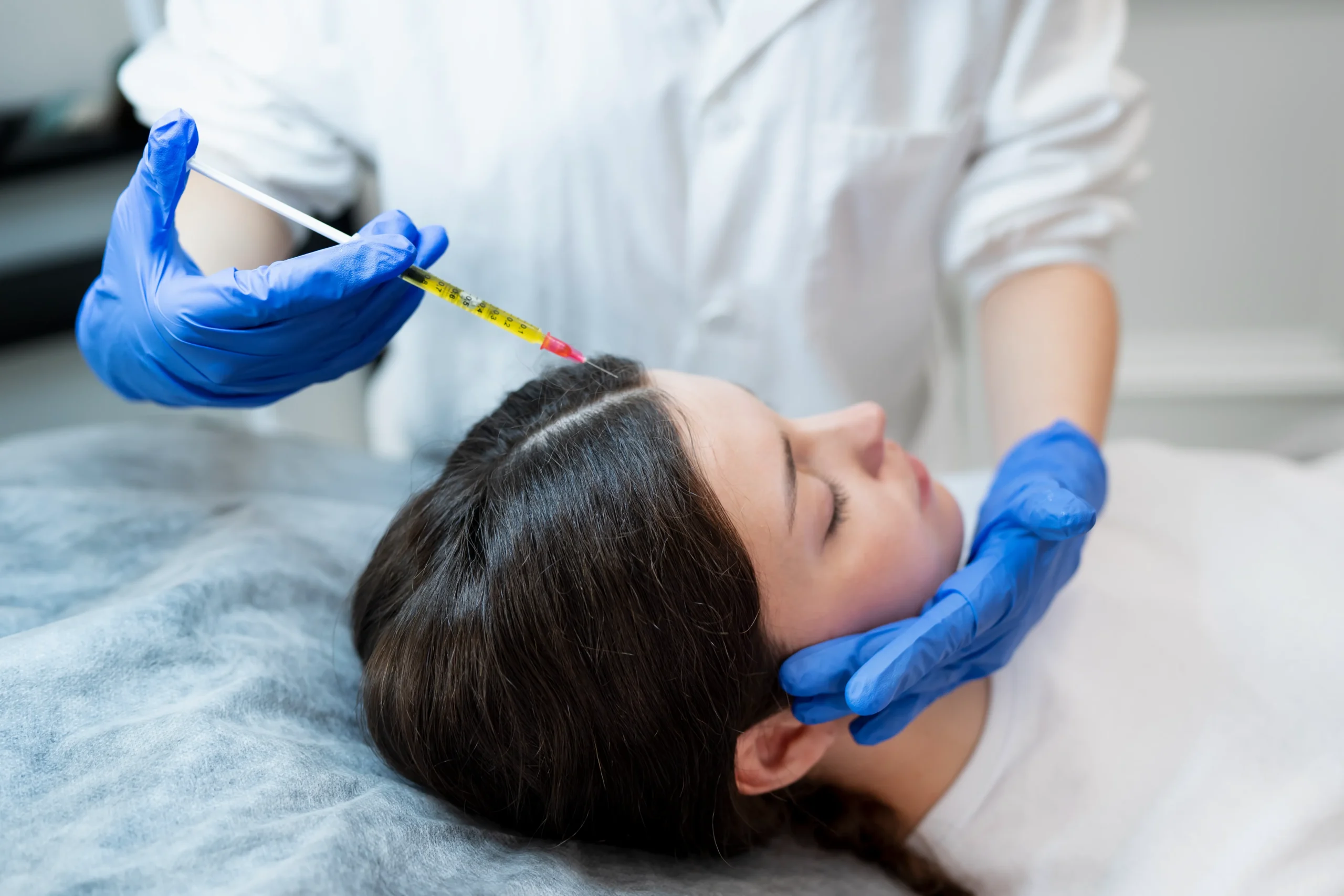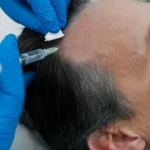Learn how to stop hair loss after anesthesia with medically proven treatments in Islamabad. Expert care by Dr. Uzma Irfan, ABHRS-certified hair specialist.
Hair loss after surgery can be alarming, especially when it occurs weeks later without warning. Many patients search for answers on how to stop hair loss after anesthesia, a condition often linked to telogen effluvium. This article explores medically accurate, ethical solutions to help you recover.
At our clinic in Islamabad, Dr. Uzma Irfan, an ABHRS-certified hair restoration specialist, offers effective and evidence-based treatments like PRP and FUE to manage post-anesthesia hair loss.

What Causes Hair Loss After Anesthesia?
Hair loss after anesthesia typically occurs due to a condition called telogen effluvium, where a large number of hair follicles enter the resting phase prematurely due to physical stress. Anesthesia, surgery, and even emotional stress can disrupt the natural hair cycle, causing noticeable thinning 2–3 months post-procedure.
Contributing factors include:
- Surgical stress and trauma
- Nutritional deficiencies during recovery
- Hormonal imbalances
- Medications administered during or after surgery
How to Stop Hair Loss After Anesthesia: Effective Strategies
Wondering how to stop hair loss after anesthesia safely and effectively? Here are some medically-backed solutions:
1. Identify the Cause with Medical Evaluation
Dr. Uzma Irfan conducts a detailed assessment to determine the root cause. Ruling out other types of hair loss, like alopecia areata or androgenetic alopecia, is essential.
2. Nutritional Support and Supplements
Post-surgery, your body may lack essential vitamins like iron, vitamin D, and biotin. Addressing these deficiencies supports regrowth and recovery.
3. PRP Therapy (Platelet-Rich Plasma)
PRP therapy is a popular, minimally invasive treatment that stimulates dormant hair follicles. It’s especially effective for telogen effluvium and is available at our Islamabad clinic.
4. FUE Hair Transplant (For Persistent Hair Loss)
If shedding persists beyond 6–9 months and other treatments are ineffective, Follicular Unit Extraction (FUE) may be recommended.
5. Scalp Health and Topical Treatments
Supporting the scalp with medicated shampoos, minoxidil, or natural oils can reduce inflammation and promote regrowth.
Recovery Timeline: What to Expect
Hair loss from anesthesia is usually temporary. Shedding begins 6–12 weeks post-op and may last up to 6 months. With proper treatment and care, most patients see regrowth within a year.

Who Is a Candidate for Treatment?
If you’ve experienced noticeable thinning 2–4 months after surgery, you may benefit from evaluation. Candidates typically:
- Had general anesthesia or major surgery
- Are in good general health
- Are not experiencing scarring alopecia
Services Offered at Our Clinic in Islamabad
We provide comprehensive treatment options for how to stop hair loss after anesthesia, including:
- PRP Therapy
- FUE Hair Transplant
- Trichology consultations
- Nutritional guidance
Dr. Uzma Irfan’s ABHRS credentials and ethical practice standards ensure high-quality care for both local and international patients.
International Patients Welcome
Located in Islamabad, our clinic is well-equipped to treat medical tourists. Patients from abroad can schedule virtual consultations and receive tailored treatment plans for post-anesthesia hair loss.
Schedule a Consultation with Dr. Uzma Irfan
If you’re struggling with how to stop hair loss after anesthesia, don’t wait. Schedule a consultation with Dr. Uzma Irfan today. Explore our treatment options, view real patient results, and take the first step toward recovery.
Frequently Asked Questions
Is hair loss after anesthesia permanent?
No, in most cases, it is temporary and resolves with proper care and treatment.
How long does hair loss last after surgery?
Typically 3–6 months. Full regrowth can take up to a year.
What treatments can help regrow hair post-anesthesia?
PRP, nutritional support, topical treatments, and in some cases, hair transplant surgery.
Can everyone get PRP for post-anesthesia hair loss?
A medical evaluation is needed to determine eligibility. Most healthy individuals are suitable candidates.
Where can I get treatment in Islamabad?
Dr. Uzma Irfan’s clinic offers specialized, ethical hair restoration solutions compliant with ABHRS standards.
Experiencing hair loss after anesthesia can be alarming, but it’s often temporary and manageable with the right care. Understanding the underlying cause—such as telogen effluvium—and seeking timely, medically guided solutions can help you recover both your confidence and your hair. Whether you’re considering PRP therapy, FUE hair transplant, or non-surgical options, expert intervention can make a significant difference.
Ready to take control? Discover how to stop hair loss after anesthesia with expert care in Islamabad.
Follow us on Facebook, Instagram, and YouTube for expert insights and real patient stories.






